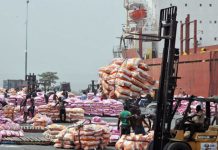- Says FG Will Not Take States Land For Scheme
- Govt. Secures 55,000 Hectares Of Land For Programme
As the controversy surrounding the Federal Government’s plan to establish Ruga settlements for cattle herders across the country rages, Vice President Yemi Osinbajo has denied that his office was coordinating the programme, even as some states have already donated lands for the purpose.
The government had on Tuesday said that in the next five years, the establishment of the Ruga herdsmen’s settlements would stop open grazing by herdsmen, but many Nigerians, including the pilot states, have criticised the plan, describing it as a ploy to colonise the country by the nomadic tribe.
General Secretary of the Miyetti Allah Cattle Breeders Association of Nigeria, Baba Uthman Ngelzarma, had reportedly said that Osinbajo’s office was helping the herdsmen to create Ruga settlements across the country, boasting that when the programme has been successfully completed, Nigerians would fully enjoy the benefits of animal husbandry.
But reacting to the claim, in a statement signed by his Senior Special Assistant on Media and Publicity, Laolu Akande, Osinbajo last night distanced himself from the plan, saying: “Contrary to claims reported in sections of the media, the establishment of Ruga settlements is not being supervised by the Office of the Vice President.”
The Vice President insisted that the federal government would not impose the planned scheme on any state government, noting: “The Ruga initiative is different from the National Livestock Transformation Plan approved by state governors under the auspices of the National Economic Council (NEC) chaired by Osinbajo.
“NEC, on January 17, this year, approved the plan based on the recommendations of a technical committee of the Council chaired by Governor Dave Umahi of Ebonyi State. Other state governors on the committee and working group of NEC are those from Adamawa, Kaduna, Benue, Taraba, Edo, Plateau, Oyo and Zamfara, mostly the frontline states in the farmer-herder crises.
“The National Livestock Transformation Plan (NLTP) 2019-2028 is a programme to be implemented in seven pilot states of Adamawa, Benue, Kaduna, Plateau, Nasarawa, Taraba and Zamfara (as decided by NEC in January), being states in the frontlines of the farmer-herder crises. Afterwards, six other states have indicated readiness to also implement the plan. They are Katsina, Kano, Kogi, Kwara, Ondo, and Edo states.
“The plan has six pillars through which it aims to transform the livestock production system in Nigeria along market-oriented value chain while ensuring an atmosphere of peace and justice.”
The statement further clarified: “The six key pillars include economic investment, conflict resolution, justice and peace, humanitarian relief and early recovery, human capital development and cross-cutting issues, such as gender, youth, research and information and strategic communication.
“In all, the federal government will not impose on any state government regarding its land.”
The Guardian learnt that the governors of Kogi, Niger, Plateau, Sokoto, Zamfara, Taraba, Katsina, Kebbi, Nasarawa, Adamawa and Sokoto states have expressed interest in the programme and donated at least 5,000 hectares of land for the project. It was not, however, clear the volume of land provided by each of the state governments.
This is as a scheduled press conference to clarify issues concerning the policy by Federal Ministry of Agriculture and Rural Development, yesterday, was called off at the last minute when journalists were told that the Permanent Secretary, Dr. Mohammed Bello Umar, was summoned from the State House to receive a visiting Commonwealth chief at the airport.
But a top ministry official told The Guardian that the state governments willingly provided the land for the federal government to implement the programme, insisting they were not forced into it.
He said: “The policy was designed to cover the entire country. The states were carried along and they were willing to give out their lands to be part of the programme. The federal government did not grab any land from the states.
“It is a lofty project wherein when implemented, other states would want to key into it when they see the benefits. The states making noise in the media should stop, because they are not part of the states that provided land for cattle colony. So, there is no way the federal government will go there and start doing ranching.”
Another ministry source said the programme was already being implemented in the states that have provided land, adding: “It is a project instituted by the Presidency and hundreds of billions of naira have been allocated to the project already. The ministry is just being carried along, because we are the implementation body.”
It would be recalled that the Kogi State Governor Yahaya Bello had in February last year donated 15,000 hectares of land to the federal government for the establishment of a cattle colony, saying that 10,000 hectares of land was secured from Ajaokuta Council, while Adavi provided 5000 hectares.
“The local communities are well sensitised and are ready to key into the programme. We are here to submit our letter on this to the Minister of Agriculture and Rural Development. We are ready to be part of any other thing the government will want,” Bello had said then.
The Ruga settlement programme is the latest attempt by the President Muhammadu Buhari administration to find a lasting solution to the incessant clashes between herdsmen and farmers, which has claimed thousands of lives, especially in the last fours years.
The states affected mostly by the crisis include Benue, Taraba, Adamawa, Plateau and Kaduna, where locals have been mindlessly slaughtered in attacks attributed to herdsmen.
In a bid to stem the tide of killings, the NEC, comprising all the 36 states governors, had in April 2017, slammed a ban on open-grazing in the country after a meeting presided over by Osinbajo at the Presidential Villa, Abuja.
Umahi, who made the announcement, said the NEC had outlawed movement of cattle from north to south of the country and their movement across the borders into Nigeria, saying the body resolved that ranches should immediately be established along with all the accompanying necessary facilities, such as schools and hospitals, especially in the conflict states.
Source” Guardian











